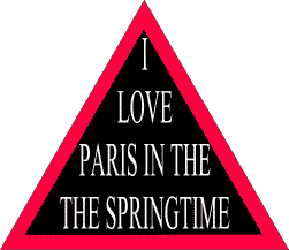FARE SQUADRA: SCEGLIERE O COMANDARE?
Alcuni miei appunti sul tema.
1) Per fortuna non siamo soli al mondo, ma è come se lo fossimo se non riusciamo a fare squadra. Se non riusciamo a dire: "tu fai questo, io faccio quello e ripartiremo il frutto del nostro lavoro". Dal coordinamento del gruppo dipende il 90% del nostro benessere.
2) Ci sono due metodi per coordinare un'economia: 1) affidarsi ad una mente centrale seguendo le sue istruzioni, 2) costruire un sistema di menti decentrate che interagiscano tramite un sistema dei prezzi.
3) Prova a immaginare un'economia che rifiuta sia i comando dall'alto che i prezzi dal basso. Quello che ottieni è il socialismo utopico: "da ciascuno secondo le sue capacità, a ciascuno secondo i suoi bisogni". Ma i socialisti tendono a sottovalutare la complessità della sfida.
4) Il filosofo Cohen, per perorare la causa del socilismo utopico, usò la metafora del campeggio: è così che ci organizziamo quando partiamo in vacanza con gli amici. Tutto va bene, siamo felici. Perché non adottare la stessa strategia altrove?
5) Ma la metafora fallisce: durante un campeggio noi scegliamo deliberatamente di limitare i nostri consumi ad un livello di sussistenza primitivo. Non ci aspettiamo di ricevere cibo tailandese, di guardare il nostro sport preferito in televisione o di sottoporci ad un'otturazione dentale.
6) In secondo luogo, ci sono relativamnte poche persone. Facile.
7) In terzo luogo, noi iniziamo il viaggio in campeggio con un set di merci già bell'e pronte. Troppo comodo. La nostra vita non è un' "eterna vacanza" come vorrebbe Cohen.
8) Altro mproblema: nell'utopia socialista ci sarebbero molti cantanti-chitarristi, attori e tennisti, ma pochi allevatori di polli, operatori sui pozzi petroliferi o addetti alle fognature.
9) Sai costruirti un tostapane partendo da zero? No? Ma guarda che nell'utopia socialista te lo devi fare tu o affidarti al caso.
10) La realtà è lontana mille miglia dall'utopia socialista e presenta caratteristiche che sono una via di mezzo tra centralismo e sistema decentrato: una produzione complessa richiede sia istruzioni all'interno delle imprese, sia un meccanismo di coordinamento tra le imprese basato sui prezzi.
11) Una pura economia di comando si osserva raramente, giusto in condizioni di guerra. Quando l'urgenza è massima e la complessità minima. Quando il mondo puo' essere ridotto su una scacchiera. In guerra, tutti vogliono distruggere il nemico, in pace tutti vogliono cose diverse.
12) Uno sponsor dell'economia centralizzata fu negli anni sessanta l'economista di Harvard John Kenneth Galbraith. Parlava di "nuovo stato industriale" e diceva che i nemici del mercato non sono i socialisti ma la tecnologia avanzata, la specializzazione e le capacità organizzative. Il cervellone che serve al centralista stava arrivando grazie ai computer. JKG si inseriva perfettamente nella tradizione dei pensatori progressisti, che dalla fine del XIX secolo avevano sostenuto che un drammatico aumento delle dimensioni delle imprese aveva reso anacronistica sia l'economia di Adam Smith sia l'idea di governo limitatao.
13) Il crollo economico dell'Unione Sovietica negli anni '80 - un grande esperimento naturale - fu la dimostrazione storica di quanto l'economia di comando centrale fosse ancora più fragile dell'economia dei prezzi.
14) Ma il colpo più duro alle idee di JKG fu la sparizione dei grandi colossi: i grandi produttori dell'acciaio cominciarono a faticare e furono costretti a trasferirsi nel terzo mondo, le case automobilistiche lottarono e lottano ancora per sopravvivere. Molti giganti contemporanei, come Google e Apple, non assomigliano in niente alle vecchie realtà industriali, si fondano su genio, creatività e idee. Nell'idea galbraitiana i "padroni del mercato" avrebbero dovuto essere immuni dalle forze schumpeteriane di distruzione creativa: non è stato così, la maggior parte delle aziende che erano che dominavano la borsa quando Galbraith scriveva sono scomparse.
15) Un 'economia di comando deve affrontare tre problemi: 1) problema dell'informazione, 2) problema degli incentivi e 3) problema dell'innovazione.
16) Problema dell'informazione. I pianificatori centrali devono decidere al buio quali e quanti prodotti e servizi devono realizzare. In un'economia di comando, non c'è il segnale di prezzo. Certo, alcune tecniche matematiche, per esempio quelle sviluppate dagli economisti del MIT, possono essere utilizzate per costruire quelli che gli economisti chiamano "prezzi ombra", ma l'operazione è difficile. In guerra i pianificatori devono decidere se costruire più navi o più carri armati, il che è fattibile poiché le esigenze sono più facili da decifrare. Ma fuori dall'emergenza, in tempo di pace, la musica cambia, i consumatori non hanno modo di segnalare ai pianificatori le loro esigenze interiori, a volte non le conoscono nemmeno loro; allo stesso modo, i lavoratori non hanno un canale per segnalare di fatto le loro abilità non sfruttate e le loro preferenze. E' improbabile che un'agenzia governativa avrebbe capito che J. K. Rowling sarebbe stata un' eccellente scrittrice di fantasy per ragazzini o che Steve Jobs avrebbe potuto divenire un catalizzatore creativo. Non per altro ma semplicemente perché i pianificatori non hanno il potere di leggere nella mente altrui, non sono in grado di incorporare i giudizi soggettivi degli individui, possono giusto fare qualche sondaggio che perde di significato man mano che il tempo passa.
17) Un'altra fonte di informazioni è la concorrenza, qualcosa che manca all'economia di comando. Qual è il prezzo del latte? Difficile capirlo senza concorrenza e possibilità di fallire.
La concorrenza disciplina anche la gestione organizzaiva. Se un ristorante è gestito male, non fornirà ai clienti un buon rapporto qualità-prezzo e fallirà. In breve, il sistema dei prezzi e la concorrenza in un'economia di mercato forniscono informazioni preziose.
18) Problema degli incentivi. In un'economia di mercato, l'autodisciplina e il duro lavoro tendono ad essere ricompensati da entrate più elevate. Il capo capisce chi sta lavorando e chi si sottrae, e gli conviene farlo in fretta se non vuole pagare lui. Se invece i pianificatori centrali commettono errori, non esiste un meccanismo di correzione. L'elusione delle regole può assumere forme ancora più plateali: in un'economia in stile sovietico, la corruzione tende ad essere dilagante, occorre entrare in qualche modo nelle grazie dei burocrati. Ma la cosa è evidente anche da noi: laddove il governo gioca un ruolo, la minaccia di corruzione è palpabile. In un'economia di mercato, l'incentivo è quello di concentrarsi sulla soddisfazione del cliente. Si avanza ingraziandosi il consumatore, non il burocrate.
19) Lo stesso problema che il governo ha con i burocrati, l'azienda ce l'ha con i manager e i quadri. Ma la concorrenza tra le imprese significa proprio che le imprese che presentano i sistemi di incentivazione e i meccanismi di monitoraggio più efficaci per sfidare la diserzione sono quelle che sopravvivono.
20) Problema dell'innovazione. In assenza di concorrenza, la maggior parte delle organizzazioni preferirebbe non sperimentare nuove idee. È più comodo attenersi alle vecchie abitudini. Ma in un sistema di mercato la minaccia dei nuovi concorrenti mette sotto pressione le organizzazioni esistenti. Quando viene provata una nuova idea di successo, occorre riorganizzare i modelli di specializzazione e commercio nell'economia. Per questo le economie di mercato sono così dinamiche, non si puo' star fermi. Per le economie di comando il cambiamento rappresenta invece una minaccia: anche se i pianificatori centrali dispongono di un metodo per valutare le innovazioni, non sono mai sotto pressione per scartare le idee sbagliate e promuovere quelle giuste. Semmai il contrario: poiché lo status quo li ha portati al vertice, loro tenderanno a favorire il suo rafforzamento.
21) Oggi nessuno osa più riproporre i pianificatori ma ricordiamoci che i regolatori governativi sono, in via di principio, soggetti alle medesime insidie dei loro colleghi socialisti.
3 Instructions and Incentives
Note:3@@@@@@@@@@@@@@@
Yellow highlight | Location: 500
How can specialization be coordinated?
Note:IL PROBLEMA
Yellow highlight | Location: 503
Your father’s occupation became your occupation.
Note:COORDINAMENTO ANCIENT REGIME
Yellow highlight | Location: 504
family name,
Note:VEDI COGNOME
Yellow highlight | Location: 504
the caste system was a detailed, rigid social order
Note:ANCORA OGGI
Yellow highlight | Location: 505
specialization is coordinated by instructions.
Note:ALL INTERNO DI UN IMPRESA
Yellow highlight | Location: 506
coordinated by prices and profits.
Note:FUORI DALL IMPRESA
Yellow highlight | Location: 509
system of incentives
Yellow highlight | Location: 513
Prices serve as signals
Note:FUNZIONE DEI PREZZI...NN SOLO INCENTIVO
Yellow highlight | Location: 516
what determines the boundaries of a firm?
Note:IL PROB.
Yellow highlight | Location: 523
when the value of different tasks can be isolated, specialization will tend to take place
Note:CONDIZIONE APPALTO
Yellow highlight | Location: 537
The surgeon who is very fast at mowing lawns
Note:TAGLIARE O NN TAGLIARE?
Yellow highlight | Location: 538
Profits are another important incentive.
Note:UN INCENTIVO PARTICOLARE
Yellow highlight | Location: 549
Patterns of specialization and trade evolve because of two mechanisms: substitution and innovation.
Note:MOTORI DEL CAMBIAMENTO
Yellow highlight | Location: 552
When corn becomes more expensive than wheat, consumers will respond to the price change
Note:SOSTITUZIONE
Yellow highlight | Location: 558
most of the solutions to market imperfections are launched by private entrepreneurs,
Note:FALLIMENTI DI MERCATO...E NNOVAZIONE
Yellow highlight | Location: 560
First is “experimentation,”
Note:LE DUE FASI DELL INNOVAZIONE
Yellow highlight | Location: 561
Second is “evaluation,”
Yellow highlight | Location: 562
Third is “evolution,” in which successful business models
Note:CAMBIO DEL MODELLO
Yellow highlight | Location: 563
The prospect of profits encourages entrepreneurs to attempt experiments.
Yellow highlight | Location: 565
Profits are a measure of the sustainability of patterns of specialization.
Note:SOSTENIBILITÀ
Yellow highlight | Location: 574
We tend to want to discuss cost as if it were an objective concept,
Note:I COSTI SONO SOGGETTIVI
Yellow highlight | Location: 577
cost of output depends on market conditions and individual judgments
Note:RELATIVISMO
Yellow highlight | Location: 580
Those factors are not directly observable, and they are constantly changing.
Note:MISIRARE I COSTI... IMPOSSIBILE
Yellow highlight | Location: 581
a distant observer is not in a position to evaluate economic performance with certainty.
Note:OSSERVATORE ESTERNO
Yellow highlight | Location: 583
if one method uses more water but requires less of the farmer’s time, then we cannot tell which method is more efficient. It depends on how farmers value their time relative to the cost of water.
Note:ESEMPIO
Yellow highlight | Location: 586
4 Choices and Commands
Note:Ttttttttt
Yellow highlight | Location: 586
centralized commands or by decentralized choices
Note:Due metodi x coordinare l economia
Yellow highlight | Location: 595
Try to imagine specialization coordinated with neither commands nor market prices. Instead, individuals decide for themselves
Note:Primo caso
Yellow highlight | Location: 596
“From each according to his abilities, to each according to his needs.”
Note:Socialismo utopico
Yellow highlight | Location: 598
socialists tend to underestimate the complexity of the challenge
Yellow highlight | Location: 600
Cohen used the metaphor of a camping trip as a model for utopian socialism.
Note:Wht not socialism
Yellow highlight | Location: 604
On a camping trip, we deliberately choose to restrict our consumption to a more primitive level
Note:Xché la metafora é inappropriata
Yellow highlight | Location: 605
we do not expect to be served Thai food, to watch our favorite sport on television, or to have a tooth cavity filled. We
Yellow highlight | Location: 607
there are relatively few people.
Note:2
Yellow highlight | Location: 608
we begin the camping trip with a set of goods that requires millions of tasks to have been performed elsewhere,
Note:3
Yellow highlight | Location: 613
There would be plenty of singer-guitarists, actors, and tennis players, but few chicken farmers, oil well operators, or sanitation workers.
Note:Nell utopia del socialismo
Yellow highlight | Location: 615
Even making an appliance as mundane as a toaster
Note:Impossibile
Yellow highlight | Location: 617
Complex production requires both instructions within firms and a coordination mechanism among firms.
Note:Una via di mezzo
Yellow highlight | Location: 623
A pure command economy is rarely observed, except under conditions of total war.
Note:Altro caso
Yellow highlight | Location: 626
they acquired about half of the total output, rationed many consumer goods, and fixed prices.
Note:Nella ii guerra
Yellow highlight | Location: 627
John Kenneth Galbraith, a Harvard economist
Note | Location: 628
Uno sponsor
Yellow highlight | Location: 628
The New Industrial State,
Yellow highlight | Location: 629
The enemies of the market are not socialists. . . . [They] are advanced technology, the specialization and organization of men
Note:Secondo JKG
Yellow highlight | Location: 635
He was writing in the tradition of Progressive thinkers, who since the end of the 19th century had argued that a dramatic increase in the scale of business enterprise had made both the economics of Adam Smith and the weak central government of the U.S. Constitution anachronistic.
Note:Monopoli
Yellow highlight | Location: 639
The economic collapse of the Soviet Union in the 1980s is a historical demonstration of the failure of a command economy.
Note:Esperimento naturale
Yellow highlight | Location: 641
The nation’s large steel makers disappeared.
Note:Altro colpo a JKG
Yellow highlight | Location: 642
automobile manufacturers have struggled to survive.
Note:Esempio
Yellow highlight | Location: 643
Many contemporary giants, such as Google and Apple, do not resemble the old industrial powerhouses
Yellow highlight | Location: 645
A Galbraithian corporation should have been nearly immune from the Schumpeterian forces of creative destruction.
Note:Nn é stato così
Yellow highlight | Location: 647
the majority of companies that were in the Dow Jones Industrial Average when Galbraith wrote have disappeared
Yellow highlight | Location: 650
A command economy faces three major problems.
Yellow highlight | Location: 650
information problem,
Yellow highlight | Location: 651
Second is an incentive problem.
Yellow highlight | Location: 653
Third is a lack-of-innovation problem.
Yellow highlight | Location: 654
Central planners face an information problem. They must decide what goods and services are produced,
Note:Il primo
Yellow highlight | Location: 656
In a command economy, there is no price signal.
Yellow highlight | Location: 658
the mathematical techniques developed by MIT-style economists can be used
Yellow highlight | Location: 658
Economists call those computed values “shadow prices,”
Yellow highlight | Location: 660
planners must decide whether to try to build more ships or more tanks.
Note:Esempio di guerra
Yellow highlight | Location: 663
That process works less well in a peacetime economy.
Yellow highlight | Location: 670
Consumers have no way of signaling to planners
Yellow highlight | Location: 670
Similarly, workers have no way of signaling to central planners that they have untapped skills.
Yellow highlight | Location: 671
It is unlikely that a government agency would have figured out that J. K. Rowling would make an excellent writer of fantasy
Yellow highlight | Location: 672
or that Steve Jobs would make a creative catalyst
Yellow highlight | Location: 675
Because central planners are not mind readers, they are unable to incorporate the individual’s subjective judgments
Yellow highlight | Location: 676
A command economy suffers from a lack of competition.
Note:Altra fonte d info
Yellow highlight | Location: 677
a milk supplier would be free to charge a much higher price
Yellow highlight | Location: 681
Competition also disciplines management. If a restaurant is poorly run, it will not provide customers with good value for their money.
Yellow highlight | Location: 683
In short, the price system and competition in a market economy provide information.
Yellow highlight | Location: 686
absence of incentives.
Note:Secondo problema
Yellow highlight | Location: 686
In a market economy, self-discipline tends to be rewarded with higher income.
Yellow highlight | Location: 687
the boss figures out who is working and who is shirking.
Yellow highlight | Location: 690
If the central planners make mistakes, then there is no correction mechanism.
Yellow highlight | Location: 692
Gaming the system can take even more flagrant forms. In a Soviet-style economy, bribery and corruption tend to be rampant.
Yellow highlight | Location: 694
in a market economy, the incentive would be to focus on figuring out ways to please customers.
Note:Ingraziarsi il burocrate o il consumatore
Yellow highlight | Location: 696
within any one firm, workers try to game the system.
Note:Stessi prob in azienda
Yellow highlight | Location: 698
Competition among firms means that the firms that come up with the most effective incentive systems and monitoring mechanisms to address gaming are the ones that survive.
Note:Ma
Yellow highlight | Location: 703
ideas
Note:Terzo fattore
Yellow highlight | Location: 705
In the absence of competition, most organizations would prefer not to experiment with new ideas. It is more comfortable to stick with old habits.
Yellow highlight | Location: 707
the threat of new entrants puts pressure on existing organizations
Yellow highlight | Location: 708
When a new idea is tried, it serves to rearrange the patterns of specialization and trade in the economy.
Note:Conseg
Yellow highlight | Location: 712
even if central planners had a method for evaluating innovations, they are not under pressure to discard bad ideas
Yellow highlight | Location: 716
People in powerful positions know that their status can be maintained under the status quo. Change represents a threat.
Yellow highlight | Location: 723
In practice, we observe neither a pure command economy nor a pure market economy. In the United States, many government regulations serve the function of commands.
Note:Di fatto
Yellow highlight | Location: 726
However, in practice, regulators are subject to the same pitfalls as the central planners





